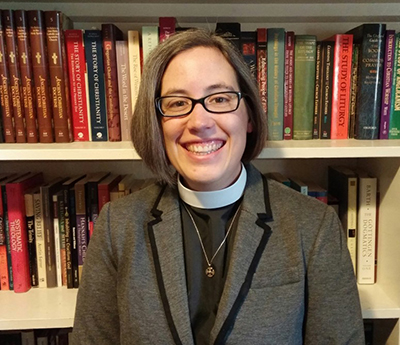SOUL MATTERS
★ ★ ★ ★
THE FREEDOM OF LOVE

By Rachel Kessler
Over the past few days I’ve been reading The Daily Show: An Oral History (a Christmas gift from my husband who knows me well). And the question I keep asking myself is this: Is fear the most defining characteristic of American life in the last two decades? Because though the behind-the-scenes story of The Daily Show is fascinating, the conversations with Jon Stewart and other producers provide us with a look at something even more interesting—how the media landscape has fed into fear-based journalism. We might think of such fear-mongering dating back to the September 11 attack, but the seeds were planted way before that. Does anyone remember when computers were going to lead to the downfall of civilization on Y2K?
It is small wonder that politicians and the media are able to use our fear to control us, especially in the U.S. where we fear so many things. Much of that fear is valid, we must admit. In the current political climate it seems every day brings us some new catastrophe to dread. What will the future of healthcare look like for my family and for my friends? What impact will the new administration’s policies have on people of color and others from less privileged and protected backgrounds? How can any of us stand against the growing tide of right-wing populism? In my darkest moments, I find myself seriously pondering what will happen if we actually face a nuclear war. And I realize there is nothing I can do to protect my daughter.
If I am honest, though, I was controlled by fear long before the election. The fear just played out in smaller, more insidious, ways. It became all the more potent once I became a parent (or really, once I become pregnant). How much of parenthood, for example, is about freaking out for your kid? Pregnancy guidebooks warn us of the dire fate awaiting our unborn offspring if we stand too close to a platter of deli meat or a particularly delicious piece of soft cheese. Profit-driven media outlets desperate for ratings or the most clicks on social media keep us awake at night with stories of everything that could happen to our children: from abductions, to choking on a common household spice like cinnamon, to the dangers of putting your kid in a front-facing carseat, all before they hit kindergarten. While these fears might exist on a smaller scale than our fears for the world, they can still consume us.
As with the threats that face democracy, racial justice, and global stability, those threats about the safety of our children are also pretty legitimate. Nevertheless, fear pulls us inside ourselves. It makes us smaller. Fears for our children’s safety robs us of joy. Fear for the country or the world can paralyze us into inactivity like a deer caught in headlights. Fear has the potential to become a prison. One in which I find myself caught more often than I would like to admit. If I could, there is a part of me that would love to hide under a blanket for the next four years. That impulse comes from fear. But that does not do any good for anyone. People in a prison cannot act.
One of my favorite passages in the bible states: “There is no fear in love, but perfect love casts out fear.” As much as I miss John Stewart’s version of The Daily Show, I’m not sure biting satire or perceptive political commentary is the ultimate solution to a culture of fear. If there is any antidote to the paralyzing, binding power of fear—it must be love. If fear draws us deeper within ourselves, love propels us out toward love of one another. If we love our children, we must (within reason) set aside our own fears of loss so that they can be full people on their own terms. Love for our neighbors calls us out from underneath that blanket of fear and to take some kind of action for the sake of the future. That is especially true for those of us who enjoy some sense of relative security and privilege as we look at what the next few years might hold. If we truly love our neighbors, we cannot allow ourselves to be held paralyzed in that prison of fear.
Earlier this week, I was inspired by a sermon recently published by the popular Lutheran pastor Nadia Boltz-Webber about the contrast between fear and love. Fear is a prison, but love that calls us out from ourselves to focus on how we can serve others’ leads us to freedom. She writes: “Freedom comes when we are released from the shackles of fear: free people are dangerous people. Free people can’t be easily controlled. Free people laugh more than others. Free people see beauty where others do not.” The question for all of us as we move forward is how we can cultivate that force of love in our communities so that we can reveal fear for what it is – powerless.

Reverend Rachel Kessler is a college chaplain and Episcopal priest. She enjoys commenting on the intersection of faith and popular culture.
























people who lives in fear will never experience living life fully. They can never enjoy life.
“Perfect love casts out fear..” i really love this verse, we need to accept that perfect love for us to be free.